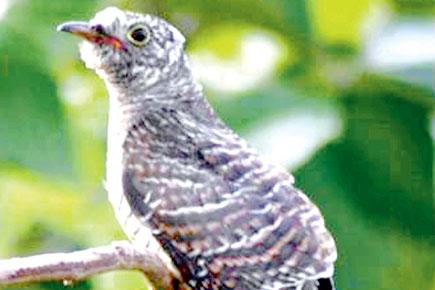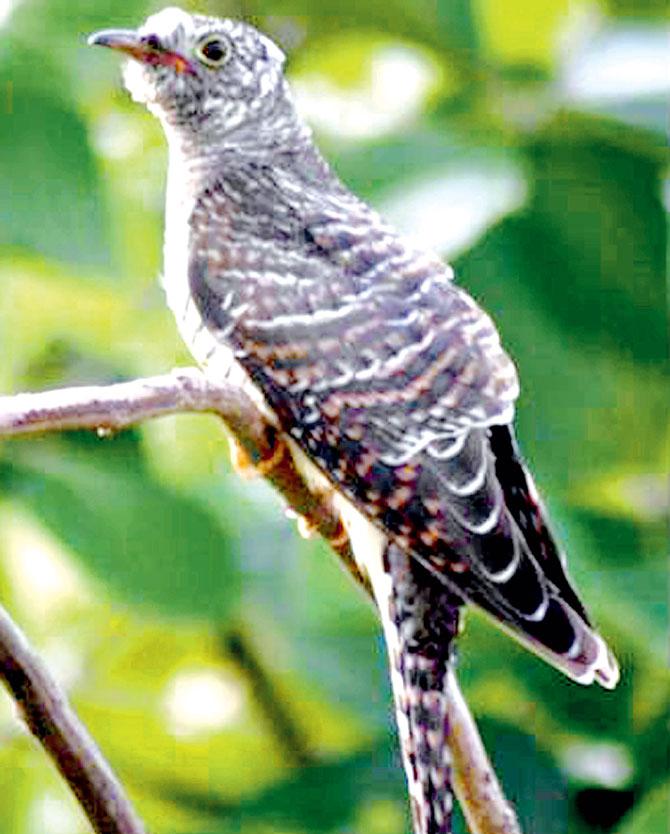Foster parenting lessons from crows

Lesser Cuckoo
 We think humans created a new-age world of outsourcing and strategic alliances. It is not so. The wild world mastered such associations millions of years ago. As kids, you must have wondered what the stories about crows and sparrows or your nursery rhymes symbolised. If you reflect now, many of them have conservation messages and reflect the mysteries of nature.
We think humans created a new-age world of outsourcing and strategic alliances. It is not so. The wild world mastered such associations millions of years ago. As kids, you must have wondered what the stories about crows and sparrows or your nursery rhymes symbolised. If you reflect now, many of them have conservation messages and reflect the mysteries of nature.
Our neighbourhood house crow has been touted as the wise one. Even Emperor Akbar quizzed Birbal about their wellbeing. For the last month or so, my green colony is abuzz with calls of Asian Koels. They start chirping around 4 am and sing until the last light is out. Sighting and hearing the gurgling calls of female koels isn't unusual. When I spotted around half a dozen of them hanging around on the same branches for over a week, I was intrigued. They were keeping a watch over a crow nest on a Vilayti Badam, waiting for their babies' crèche to get ready.

Lesser Cuckoo
Koels, like most cuckoos, don't build their own nests. Instead they lay their eggs in a crow's nest. This may seem like an over-simplified and fast-forwarded version of the story. In fact, this practise of depositing ones eggs in another creature's nest is highly- evolved behaviour and referred to as brood parasitism or klepto-parasitism. True brood-parasitic creatures such as some birds (cuckoos), fish (catfish) and insects (wasps) skip their responsibilities of parental care and leave the host, generally an unrelated species, to take care of their off-springs.
Many species of cuckoos klepto-parasitise bird nests, ranging from the size of tailorbirds and reed warblers to babblers and crows. Many a times, the parasitic chick arrives a few days before the host's chicks and grows at a rapid pace, toppling other eggs out of the nest or demanding more food. Eventually, the chick grows four times larger than its host parents, who make over 200 rounds a day with suitable caterpillars, mantids, moths, bugs or fruits. The fatigue of feeding such a large chick can even lead to the host parent's death.
The Asian Koel, however, has to trick the smart crow into accepting its eggs. Since both male and female house crows share parental responsibilities such as nest building, incubation and feeding of the chicks, when the male koel visits, the crow leaves its nest accepting the koel as its co-parent. The female koel lays her pre-fertilised single egg when a crow nest is unguarded. On realising that they have been tricked, crows are known to chase away the female koel.
Since crows are known to possess the ability to count, koels have to ensure that an egg is consumed or destroyed before they replace it with their own egg. If the numbers and appearance match, the egg is accepted. The cuckoo fledgling hatches three orfour days before the host's eggs. The crows feed the koel chick who mimicks crow sounds and behaviour. Koel chicks steer clear of any altercation with the crow hatchlings who attempt to destroy competition. Once accepted, all chicks are treated and fed equally, till they are ready to fly off. But research has shown that the first-emerged koel chick receives more food than its crow siblings.
Brood parasitism holds disadvantages too, especially when it comes to learning species-specific songs. However, the genetically-ingrained traits help such brood parasitic birds develop their own songs when breeding season arrives.
Learning from our intelligent crows, more humans need to follow such evolutionary behaviour and adopt kids and curb population.
Write in to Anand at sproutsenvttrust@gmail.com
 Subscribe today by clicking the link and stay updated with the latest news!" Click here!
Subscribe today by clicking the link and stay updated with the latest news!" Click here!







